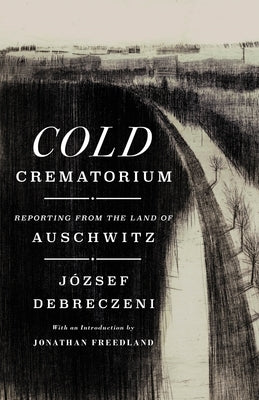Before you leave...
Take 20% off your first order
20% off
Enter the code below at checkout to get 20% off your first order
Discover summer reading lists for all ages & interests!
Find Your Next Read

A lost classic of Holocaust literature translated for the first time--from journalist, poet and survivor József Debreczeni
"As immediate a confrontation of the horrors of the camps as I've ever encountered. It's also a subtle if startling meditation on what it is to attempt to confront those horrors with words...Debreczeni has preserved a panoptic depiction of hell, at once personal, communal and atmospheric." --New York Times
"A treasure...Debreczeni's memoir is a crucial contribution to Holocaust literature, a book that enlarges our understanding of 'life' in Auschwitz." --Wall Street Journal
"A literary diamond...A holocaust memoir worthy of Primo Levi." --The Times of London
"It should be required reading." --Jonathan Safran Foer, author of Everything Is Illuminated
"A timely reminder of man's inhumanity to man." --Jung Chang, author of Wild Swans
József Debreczeni, a prolific Hungarian-language journalist and poet, arrived in Auschwitz in 1944; had he been selected to go "left," his life expectancy would have been approximately forty-five minutes. One of the "lucky" ones, he was sent to the "right," which led to twelve horrifying months of incarceration and slave labor in a series of camps, ending in the "Cold Crematorium"--the so-called hospital of the forced labor camp Dörnhau, where prisoners too weak to work awaited execution. But as Soviet and Allied troops closed in on the camps, local Nazi commanders--anxious about the possible consequences of outright murder--decided to leave the remaining prisoners to die in droves rather than sending them directly to the gas chambers.
József Debreczeni was a Hungarian-language novelist, poet, and journalist who spent most of his life in Yugoslavia. He was an editor of the Hungarian daily Napló and of Űnnep in Budapest, from which he was dismissed due to anti-Jewish legislation. On May 1, 1944, he was deported to Auschwitz after three years as a forced laborer. He was later a contributor to the Hungarian media in the Yugoslav region of Vojvodina, as well as leading Belgrade newspapers. He was awarded the Híd Prize, the highest distinction in Hungarian literature in the former Yugoslavia.
Paul Olchváry has translated many books for leading publishers, including György Dragomán's The White King, András Forgách's No Live Files Remain, Ádám Bodor's The Sinistra Zone, Vilmos Kondor's Budapest Noir, and Károly Pap's Azarel. He has received translation awards from the National Endowment for the Arts, PEN America, and Hungary's Milán Füst Foundation. His shorter translations have appeared in The Paris Review, The New York Times Magazine, The Kenyon Review, Tablet, AGNI, and Guernica. He lives in Williamstown, Massachusetts.
Thanks for subscribing!
This email has been registered!
Take 20% off your first order
Enter the code below at checkout to get 20% off your first order